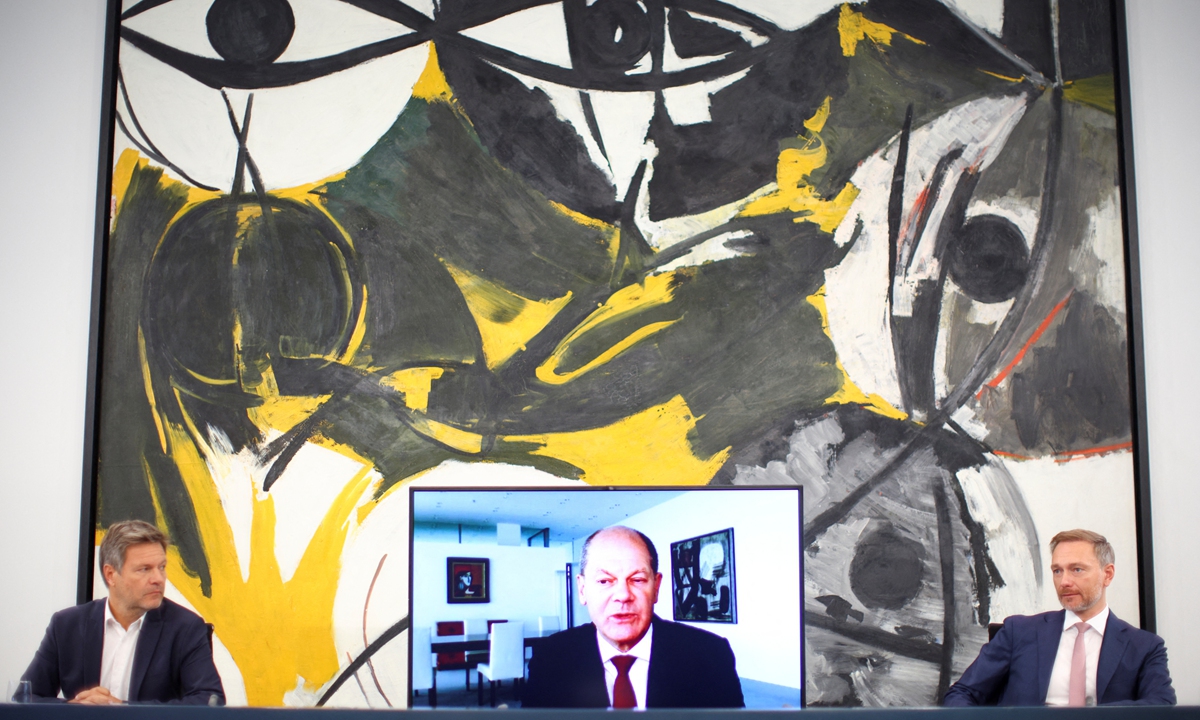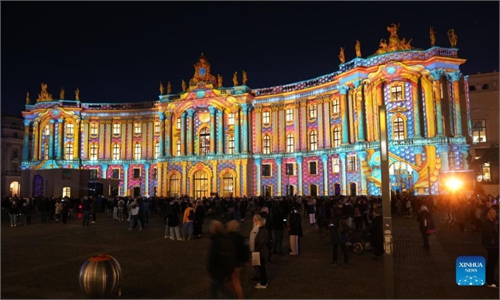
German Chancellor Olaf Scholz (on screen), Economics Minister Robert Habeck and Finance Minister Christian Lindner attend a news conference about how to handle high gas prices, at the Chancellery in Berlin, September 29, 2022.Photo: IC
Germany's Social Democrats on Sunday won a closely fought regional election dominated by worries over soaring energy costs, TV exit polls said, giving Chancellor Olaf Scholz a welcome boost.
Scholz's Social Democratic Party of Germany (SPD) was set to remain the largest force in the coastal state, taking around 32.5 to 33.5 percent of votes, according to exit polls by public broadcasters ARD and ZDF.
The conservative Christian Democratic Union of Germany (CDU) of former chancellor Angela Merkel came a distant second at 27.5 percent.
The election was seen as a key test for Scholz and his government's handling of the energy crisis caused by the Russia-Ukraine conflict, and came after the SPD was soundly beaten by the CDU in the last two regional polls in North Rhine-Westphalia and Schleswig-Holstein.
The Greens, Scholz's coalition partners on the federal level, surged to around 14 percent on Sunday - their best-ever result in Lower Saxony and nearly double their score from five years ago.
The far-right Alternative for Germany also had reason to cheer, climbing to around 12 percent as it capitalizes on anger over the rising cost of living in Germany.
The Russia-Ukraine conflict has sent prices for power soaring, pushing German inflation to a record-high of 10 percent in September and fuelling fears of a looming recession in Europe's top economy.
The Lower Saxony election was "very important" for Scholz, political scientist Karl-Rudolf Korte told ZDF, calling it "a referendum on the government's
policy" as Germany grapples with several crises.
Lower Saxony's popular Premier Stephan Weil from the SPD, who is set to nab a third consecutive term, had called the election contest "the most difficult of my life."
"Never have I seen so many question marks and worries on citizens' faces," he told WirtschaftsWoche magazine ahead of the vote.



